On the same day the government and the Moro Islamic Liberation Front signed the Comprehensive Agreement on the Bangsamoro (CAB), on 27 March 2014, residents of Wao town in Lanao del Sur staged a rally to express their desire to be excluded from the proposed political entity that seeks to end decades of armed conflict in Mindanao.
The month before the signing of CAB, the municipal government had submitted a manifesto to Congress, President Benigno Aquino III and the peace panels to exclude Wao from the Bangsamoro. On 9 June 2014, the Sangguniang Bayan passed a resolution expressing the same sentiment. And on 16 October of the same year, the municipal government submitted a position paper further elaborating its position.
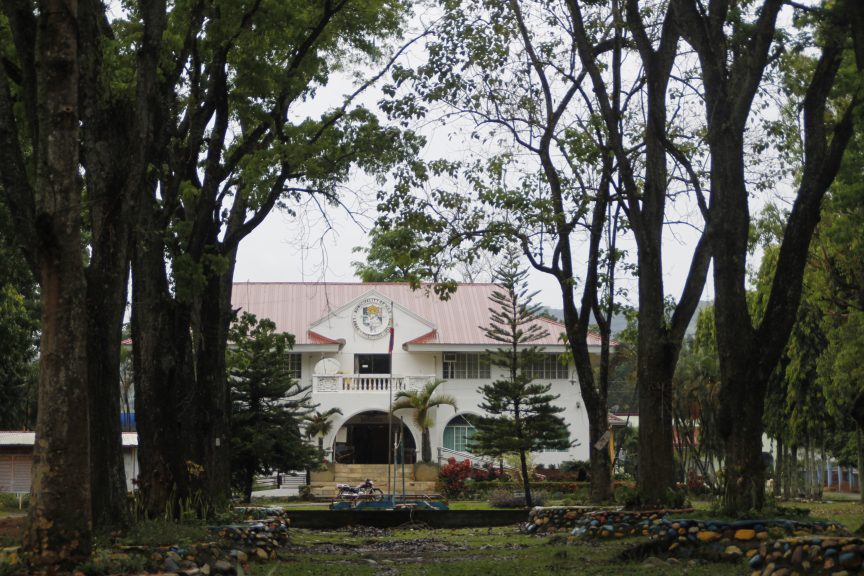 Wao Municipal Hall. Most progressive town of Lanao del Sur. MindaNews photo by Aries Sandino M. Mordeno
Wao Municipal Hall. Most progressive town of Lanao del Sur. MindaNews photo by Aries Sandino M. Mordeno
The position paper said Wao’s vote in the event of a plebiscite on the Bangsamoro should be counted separately from Lanao del Sur’s. It said doing otherwise “will result to injustice on our basic rights,” adding it was time to heed Wao’s voice which has been “suppressed by political boundaries”. It further cited that the manner of the plebiscites on the ARMM in 1989 and 2001 was “oppressive”, as the result was based on how the province voted as a whole and the “No” vote of the town was ignored.
Prof. Miriam Coronel-Ferrer, chair of the government peace panel during the Aquino III administration, offered a different argument, in a forum in Malaybalay City on 22 May 2014 attended by Bukidnon’s Catholic clergy. (Wao belongs to the Diocese of Malaybalay.) Citing Moro residents of Wao, Ferrer said [excluding the town from the Bangsamoro] would be an injustice to the hospitality of native inhabitants who welcomed the settlers to their place.
Resettlement site
Wao, although part of Lanao del Sur, is inhabited predominantly by Christian settlers who now comprise at least 80 percent of the population. It became part of the ARMM by virtue of Republic Act 6374 of 1990 and RA 9054 of 2001 which expanded and strengthened the autonomous region. The rest of Lanao del Sur’s 39 municipalities are Muslim-dominated.
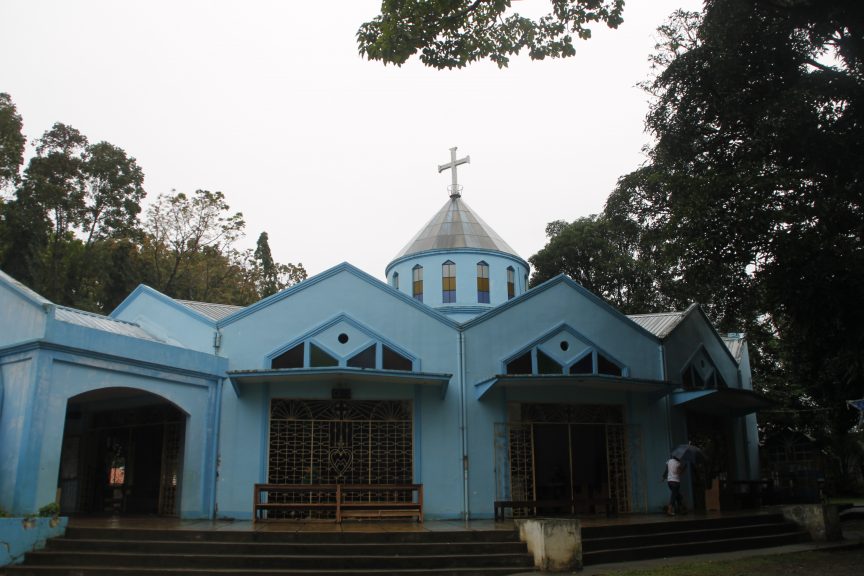 Immaculate Conception Parish Church in Wao. Christians now comprise majority of local residents. MindaNews photo by Aries Sandino M. Mordeno
Immaculate Conception Parish Church in Wao. Christians now comprise majority of local residents. MindaNews photo by Aries Sandino M. Mordeno
Lying next to Kalilangan in Bukidnon and Alamada and Banisilan in North Cotabato, Wao became a resettlement site during the Quirino and Magsaysay administrations. To entice settlers from various parts of the country, the government provided them lands, farm tools and supplies and other incentives. Thanks to the industry of the settlers, Wao parish priest Fr. Floredelito Nazareno said in an interview on 6 January 2017, the place and its people prospered, in stark contrast to the status of Lanao del Sur as one of the most impoverished provinces of the country.
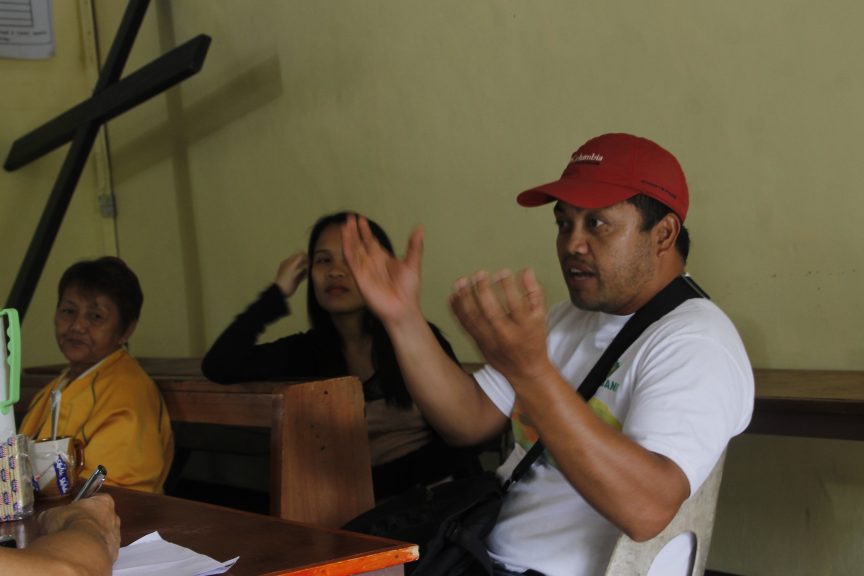 Lay leader Randy Wagas: “Difficult to reconcile Christian and Muslim cultures.” MindaNews photo by Aries Sandino M. Mordeno
Lay leader Randy Wagas: “Difficult to reconcile Christian and Muslim cultures.” MindaNews photo by Aries Sandino M. Mordeno
Settlers, Fr. Nazareno said, would emphasize their contribution to Wao’s development as a reason for their rejection of the Bangsamoro. He added the settlers are also questioning why the law carried an “opt in” section but not an “opt out” provision.
Absence of government
In a separate position paper dated 16 August 2014 and written in Cebuano, Catholic lay leaders in Wao voiced their stand for the town’s exclusion from the Bangsamoro. They said that while they appreciate the determination and sincerity of the government and the MILF to pursue peace, they believe the Mindanao problem cannot be resolved by the aggressive effort of then President Benigno Aquino III to implement the CAB.
Signed by 210 lay leaders, the position paper argued that if the ARMM which the Bangsamoro shall replace, is indeed a “failed experiment,” it is not for lack of resources but for “dysfunctional or nonexistent” local government units. It said the national government has done no concrete moves to rectify the alleged anomalies. “This is why government money has been drained but services are wanting and sometimes nothing reaches the people,” it added.
But the lay leaders pointed out that Wao’s experience in governance differs from that of other municipalities of Lanao del Sur “as can be seen from the progress the town has achieved.”
Fr. Nazareno echoed a similar observation. “The DILG (Department of the Interior and Local Government) should mentor the LGUs of Lanao del Sur. The national government is not aware how the IRA (internal revenue allotment) is being spent…If only the money goes to the people.”
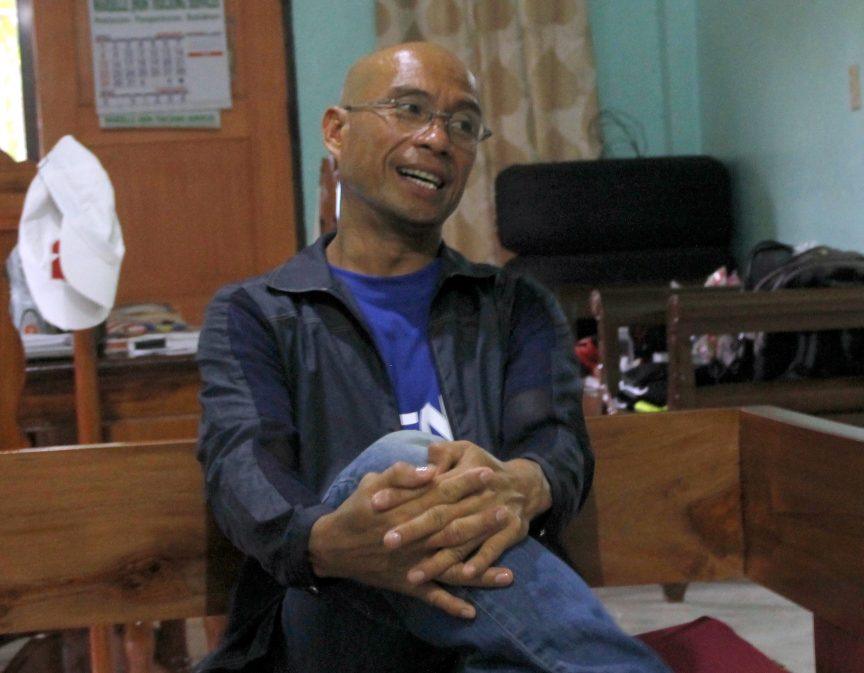 Wao parish priest Fr. Floredelito Nazareno: DILG should mentor the local government units of Lanao del Sur. MindaNews photo by Aries Sandino M. Mordeno
Wao parish priest Fr. Floredelito Nazareno: DILG should mentor the local government units of Lanao del Sur. MindaNews photo by Aries Sandino M. Mordeno
“Audit, dili ma-audit kay hadlokon lang, wala na (Audit can’t be done because of threats). Why not bring a battalion of Marines during audit?” Nazareno, who had served as priest in Malabang, Lanao del Sur, suggested.
“The national government just relies on the word of the politicians. The reports, development plans and all about Wao have been copied many times by other municipalities of Lanao del Sur,” he said.
“Cultural divide”
Randy Wagas, vice president of the Parish Pastoral Council cited [1] cultural differences and [2] fears that properties owned by Christian settlers would be divested in favor of Wao’s Moro inhabitants as among the reasons for their opposition to the Bangsamoro.
He said some Christians panicked after some Moro residents spread word they would confiscate lands and houses owned by the latter once the Bangsamoro is approved. “So, what would the Christians do when we bought these properties? We were brought here by the government,” he said, referring to the resettlement programs in the 1950s. “That’s why many people here have bought firearms.”
Besides, he added, it is difficult to reconcile Christian and Muslim cultures.
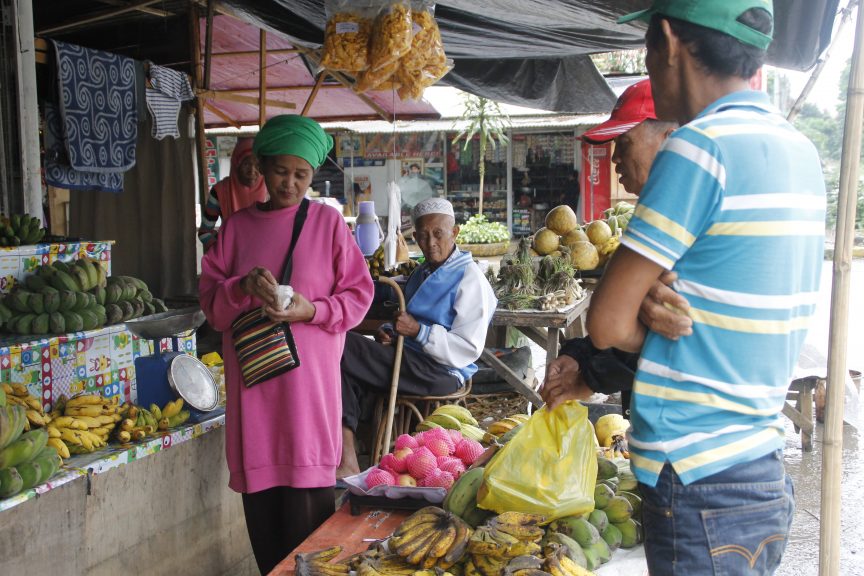 Iranun fruit vendors in Wao. MindaNews photo by HMC Mordeno
Iranun fruit vendors in Wao. MindaNews photo by HMC Mordeno
“Dili na ta makabaligyag baboy sa merkado kay ibawal na man. Lahi ilang balaod (We can no longer sell pork in the market because it will be banned. Their law is different),” Marissa Gerona, a resident, said. “King na ang mo-dominate sa ato (A king will rule over us).”
Iranun natives approached by MindaNews said they have no problems concerning their relations with settlers. As for the Bangsamoro, they said they believe the law will help bring peace but admitted they have not read it. “Nakabalo ko ana nga balaod pero dili ko familiar,” one of them said. Asked if she knew that it will replace the ARMM, she answered in the negative and added she was unaware too if it had been approved or not.
“Mag-apil-apil pa ko ana nga naa ka sa paninda (I’d rather attend to my merchandise than get involved with it),” she said.
Sarah Amad-Tomara, although a member of the Moro National Liberation Front herself, appeared to be unfamiliar too with the proposed Bangsamoro law. “Napasar man tingali kanang balaod sa MN (MNLF). Ako man ang kuan sa MN, kang prof (MNLF founding chair Nur Misuari), under sa gobyerno kini nga kuan (I think this law by the MNLF has been passed. I’m with the MNLF of Prof. [Nur Misuari], this is under the government).”
Federalism?
Fr. Nazareno said that on 25 November 2016, during the local celebration of the Mindanao Week of Peace, they invited former Quezon City congressman Dante Liban to explain the Duterte administration’s federalism agenda. Liban, president of the People’s National Movement for Federalism, said the plan is to establish two federal states for the Moro areas — Marawi State and Sulu State. His group is working with the Department of the Interior and Local Government in holding consultations on federalism.
Wagas, however, doubted that the proposed federal setup would make any difference since Wao will remain part of Lanao del Sur. “We’re satisfied with the ARMM, just change whatever is wrong with it,” Wagas said, echoing the stand of the municipal government. He claimed that most Moro residents of Wao, particularly the old-timers who have lands and businesses, also oppose the Bangsamoro but are just afraid to voice their sentiment.
“But many would prefer federalism over the Bangsamoro,” he noted.
If Congress decides to pass the law, Wagas said, they’d rather leave Lanao del Sur and join either Bukidnon or North Cotabato. He, however, knew such proposal needs the approval of the provincial government, which he considered a long shot. (H. Marcos C. Mordeno/MindaNews)
